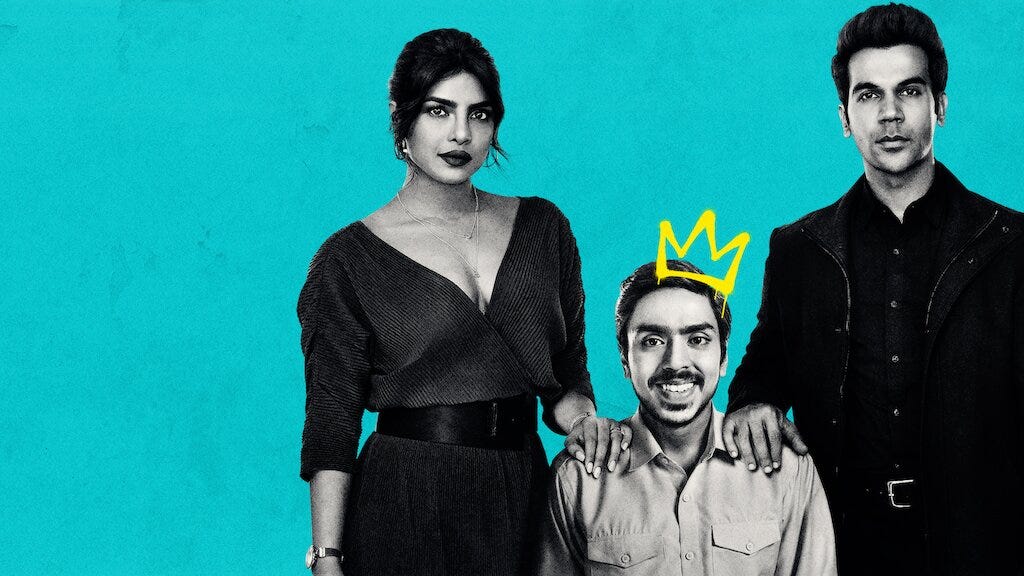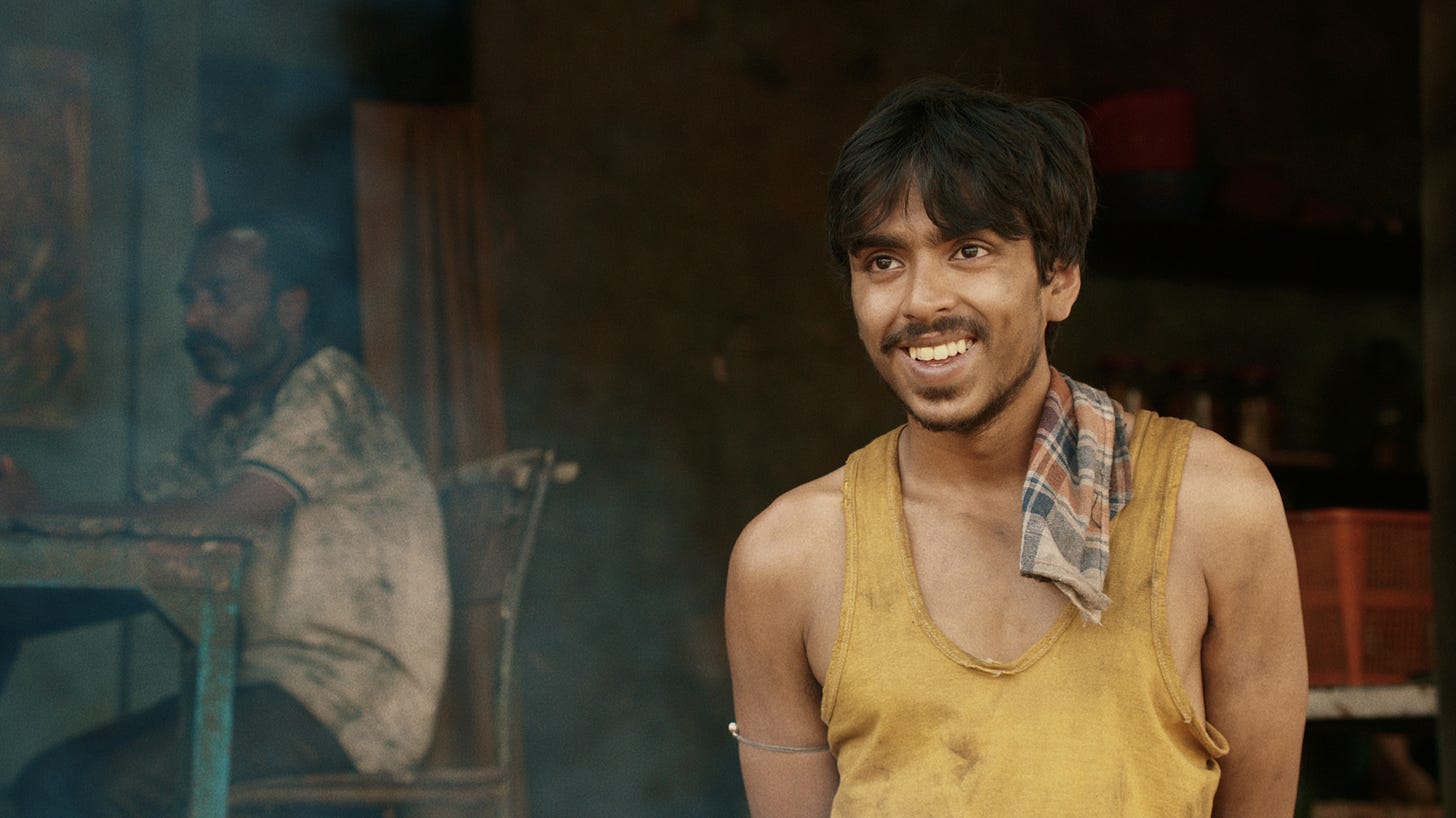December marks our last book club pick of the year.
So far, we’ve read a book on the ethics of global citizenship from a Lebanese novelist, the memoirs of the punk-rock-poet laureate Patti Smith, the surprising story of a child actress who was relieved when her stage-mom died, and a magical-realism infused memoir about a novelist digging up the body of her curandero grandfather in Colombia - and unearthing her spiritual and cultural inheritance in the process.
These books have taken us around the world, bringing us into the lives of a diverse cast of characters. And although we’ve leaned heavily into memoir, these stories were often stranger than fiction.
But it’s high time for a good novel, isn’t it? Better yet - one with a tone perfect for the darkest days of the year.
That’s why this month, I’d like to take us to the other side of the globe for a novel unlike any other. Pack your bags for India for a story that exposes the dirty underbelly of rising economies in the global south - and the murderous consequences of success.
Although not new, this book won the Man Booker Prize for fiction in 2008, the same year I was living in rural India, working in economic development.
At that time, India was being hailed as one of the “BRICS” countries - Brazil, Russia, India, China and South Africa - that were poised to rise to immense wealth and power in the coming decade. And as a recent graduate shuttling between rural Kanartaka and the dynamism of Mumbai, I couldn’t help but believe in this potential.
14 years later, the results are mixed. A reignited cold war, a global pandemic, a lurch towards totalitarianism and a retreat to nationalism has shattered the optimism of those Halcyon Days of globalization.
But not everyone was so optimistic back then. Others were more clear-eyed about the fundamental contradictions and ironies inherent in this predicted rise - namely, that not everyone was set to benefit from it. And that many would die to make it happen.
But who would that be? And what moral quandaries would we confront in a world where the only way to rise is through crime or politics - and the intersection of both?
These are some of the questions posed by this month’s pick - The White Tiger by Aravind Adiga, first published in 2008 and recently made into a film on Netflix, produced by Priyanka Chopra - who reportedly pushed to make the movie (and star in it) after reading the book. Last year, it was finally made by acclaimed writer-director Ramin Bahrani.
The novel tells the rags-to-riches story of Balram, an ambitious young Indian driver eager for any opportunity to escape the crushing poverty of his small village of Laksmangarh. And when he lands a job as the driver of a powerful family, he suddenly finds himself witnessing wealth and privileges beyond his wildest imagination.
But unlike the quintessentially American Horatio-Alger-esque rags to riches narratives in which poor but smart upstarts find success through hard work, Balram is constrained by India’s ancient caste system. The rich and poor were incarnated into these castes by their actions in past lives. There is no changing castes in a mortal life.
And yet, the novel begins in the present moment, where Balram is a wealthy entrepreneur in Bangalore, Kanartaka (the state where I lived and worked). He’s writing the primier of China, asking for a personal audience during his upcoming visit to India. The entire book is written in this epistolary fashion, with Balram narrating his rise to power as an explanation of why he deserves a meeting.
So how did Balram get to be so rich and powerful? This is the story.
In an early scene, Balram is a boy in his small village whose when a member of the government asks him to explain the Great Indian Socialist message: That any poor boy in any forgotten village can grow up to become prime minister of India. His teacher recommends Balram for a prestigious scholarship in Delhi, telling him that he is a “white tiger” - a once-in-a-generation mind destined for great things.
But when Balram’s father can’t pay his sharecropping debts to the local landlord, Balram has to drop out of school to help his family by breaking coal for a tea shop - the same miserable existence his family has endured for countless generations.
Then he sees Ashok, the prince-like son of the landlord to which his family is indebted. Not only does he want to serve Ashok as his driver - he wants to be him. His biggest dream is to have servants of his own - to shift from servant to master.
"Do we loathe our masters behind a façade of love,” he asks. “Or do we love them behind a façade of loathing?"
Thus begins Balram’s journey to power, riches and status - no matter the cost.
I’ll say no more. Just get the book.
I hope you join us in reading this book (or at least watching the film on Netflix). Not only is in a page turner, but it exposes the ugly reality of classism and economic inequality inherent in our modern global world.
Many of readers of The Missive are recent arrivals in Mexico City who are grappling with how their privilege functions in a society rife with servants and class immobility. And for those readers in particular, The White Tiger will certainly serve the purpose of “afflicting the comfortable” with a narrative that also comforts the afflicted.
In short, The White Tiger is no beach read or Hallmark movie - but we’ll be better for reading it.
Will you join us?
Get your copy here and join our free book club private chat by clicking the link below (FYI you need the Substack app to use it). And if you want to join our live discussion on December 29th, consider upgrading to a paid subscription before my 25% off offer expires tonight!
Enjoy the book, and thanks for reading along with me this year.
Your author,
Marko Ayling









